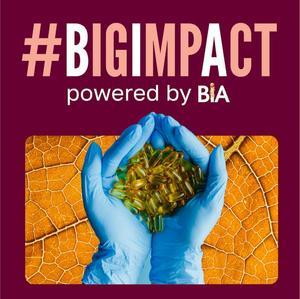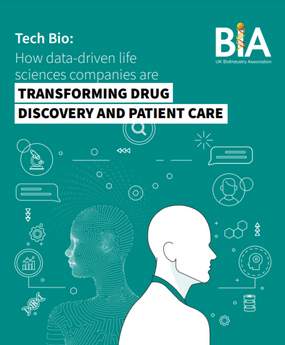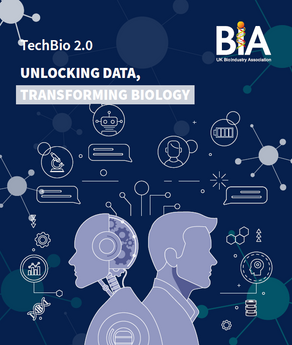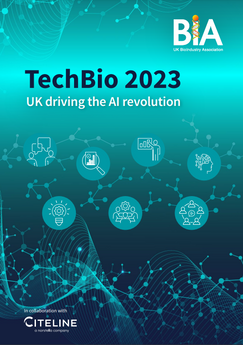TechBio
What is TechBio?
The life sciences sector is evolving. Biotech companies are using cutting-edge techniques from data-driven tech to transform drug discovery and patient care. We call this interface of biology and technology “techbio".
These companies combine insights from both sectors to draw from a wealth of data, including clinical, genomic and molecular. Their innovations will allow the healthcare system to deliver personalised healthcare to more patients, more quickly, at a lower cost.
#BIGIMPACT - TechBio skills campaign
The #BIGIMPACT campaign encourages people with digital skills to pursue a career in biotech and life sciences. With data, machine learning and AI playing an increasingly critical role in our sector, we urgently need professionals with advanced digital and data-driven skill sets to drive innovation forward.
Join us on a mission to bridge the skills gap in the biotech industry and attract the next generation of digital talent. Let's make a #BIGIMPACT together!
TechBio policy priorities
Given its central importance to TechBio companies, data access is a key policy priority for the BIA. We’re focusing on the governance and contracting associated with data access, as well as the technical side of data standards and environments.
Improving industry access to health data through streamlining governance, technical standards and commercial agreements. These policy priorities are informed by our members.
Health impacts of data access
The aim of analysing health data is to improve our health and well-being. Data collected for a variety of reasons, including during routine care, can be used again for research and innovation. Industry plays a key part in medical research; discovering new treatments and ways to diagnose disease. Innovators in the industry must adhere to high standards of ethical and legal governance as well as data protection in order to access health data. We are showcasing the impact of health data access through our industry case studies. These examples outline health benefits made possible through industry accessing health data.
- TechBio innovator: CardiaTec case study
- TechBio innovator: Brainomix case study
- TechBio innovator spotlight: Faster, more accurate diagnosis of prostate cancer
- TechBio innovator spotlight: Developing new treatments for fragile X syndrome
Resources
We have published three TechBio reports:
- TechBio explainer booklet gives an introduction to the exciting BIA member companies that are working at the interface of biotechnology and technology and shows how data-driven life sciences are making an impact on drug discovery and patient care.
- TechBio 2.0: Unlocking data, transforming biology showcases the next generation of data-driven life science companies that use cutting-edge technologies such as machine learning and Artificial Intelligence (AI) to transform drug discovery and deliver better outcomes for patients.
- TechBio 2023: UK driving the AI revolution: the latest report highlighting the thriving UK TechBio sector, with a growing number of companies pioneering groundbreaking products and services, seamlessly integrating biotechnology and technology.
Health Research Authority released guidance which gives a step-by-step overview of the process for accessing health and social care data for research of data-driven technologies. This includes essential considerations for those looking to do health and care data research, at what stage to complete documentation so that it is most effective, and what conversations to have with data providers. The guidance also includes a directory of key players and definitions of terms and concepts.
Spending time in the planning stages to identify the data you need, understand what data is available, and to have conversations with the right people, may shorten timelines by preventing avoidable delays.
The AI and Digital Regulations Service supports the development and widespread adoption of safe, innovative, value-adding technologies in health and social care. It aims to optimise care and improve outcomes across the system.
The service has now launched the section of the website aimed at adopters. This new information service helps the NHS and wider care system effectively deploy the best AI and digital technologies. It provides useful and useable guidance on how to identify, pilot and rollout such technologies at scale.
This service is a multi-agency collaboration between the National Institute for Health and Care Excellence, the Care Quality Commission, the Health Research Authority and the Medicines and Healthcare products Regulatory Agency.
- Introducing NICE Advice
- Regulating artificial intelligence
- BIA submission to the science and technology committee's inquiry on the governance of AI
- BIA Submission on AI Regulation Consultation
- Apply for Biomedical Catalyst 2022 Round 2: Industry-led R&D
.png)
.png)




